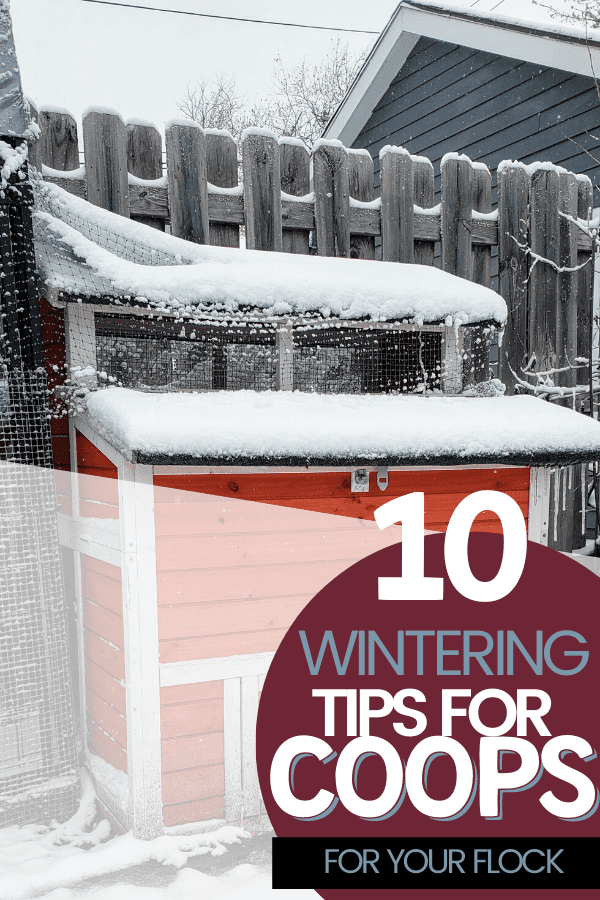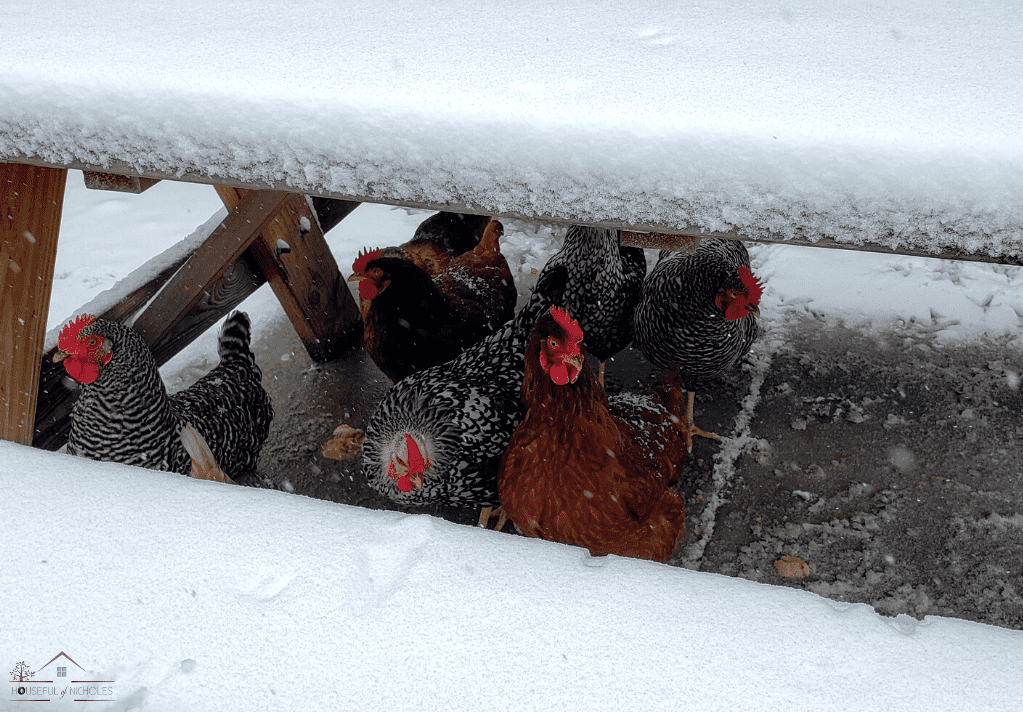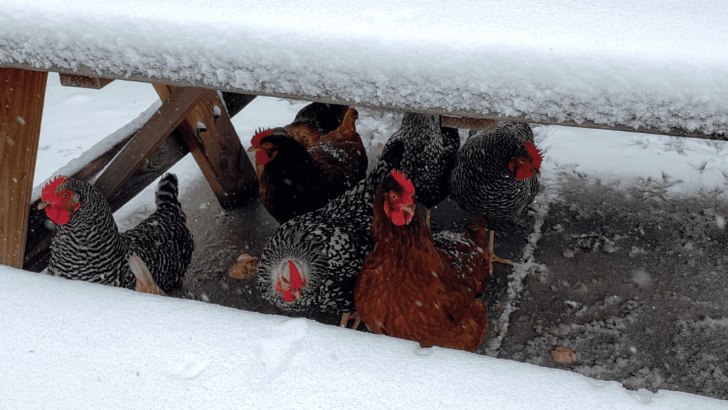As the winter season approaches, you might note that the productivity of your chicken goes down a notch. There could be various factors in play here but cold is the common one. Chickens are hardy birds but they can only resist the cold to a certain extent. When wintering your chicken coop, you should consider this and other factors as well. If keeping your chickens comfortable and productive all is important to you, you'll want to follow these great tips. I have some effective tips on how you can winterize your chicken coop and have happy girls all season long.
This post contains affiliate links

10 Tips for Winterizing Your Chicken Coop
1. Block out the chilly wind and snow
Try to block out as much wind as you possibly can from getting into your chicken coop. Farmers who let their chicken free-range or those who have an open run are the ones who are affected by this most times. You can use plastic sheeting or plexiglass to keep the wind out. Make sure you leave ventilation at the top so that you can have enough circulation of air.
2. Keep the coop well ventilated
Good ventilation prevents the buildup of ammonia and keeps the birds healthy. Poor ventilation could be more dangerous than cold. When blocking out the wind, leave some ventilation space at the top of the coop to keep the air within regulated.
3. Use jelly to protect from frostbites
In the winter, it is common for your chicken to suffer from frostbites. You can be able to see that on their wattles, combs or legs. Cover these combs with petroleum jelly for additional protection. It will keep them warm.
4. Use sunlight as a heat source
Although there is not much sunlight during the winter season, you can be able to trap whatever little comes up during the day and convert the same into heat at night. You can do this by insulating the windows in the coop. This can trap some energy during the day and vent it out into the coop at night, keeping the birds warm and comfortable.

5. Go the deep litter way
Wood shavings and other forms of organic matter such as dry grass will work as insulation. Just make sure that you turn it around now and then to prevent the accumulation of mold inside the coop. This is the PERFECT job for little hands to do. You'll also come to appreciate your pitchforks a lot more.
6. Predator proof your coop and chicken run
Chickens have quite a few predators and this can increase during the winter season since animals look for easier prey. As the ground freezes up, these predators lack enough food and your chicken become attractive alternatives. To prevent loss to the predators, make sure you predator proof your coop. You can do this by making sure that openings are secured, and that there is no way for predators to dig under, rip through, or break into the coop.
7. Let the chickens roost
Chicken perches or roosts above the ground keep them away from the frozen ground. This will keep them somehow warm during the winter. Their feet can succumb to frostbite easily, and this is a way to prevent that.
8. Add fresh bedding
Now it might be a great time to replace your bedding with new, clean bedding. Get rid of debris, poop (remember to set aside for compost) and other matter from the coop. Then add fresh bedding all through. This will insulate your coop very effectively.
9. Layer the floor with concrete
The coop floor is one place where a lot of heat gets lost. To trap it in, consider using material that retains heat. Stone and concrete floors absorb a lot of heat during the day and release it at night.
10. Minimize gaps
Gaps within the coop can bring in a lot of cold air and make the birds really uncomfortable. Make sure you have closed these gaps as much as possible, while still paying attention to ventilation.

